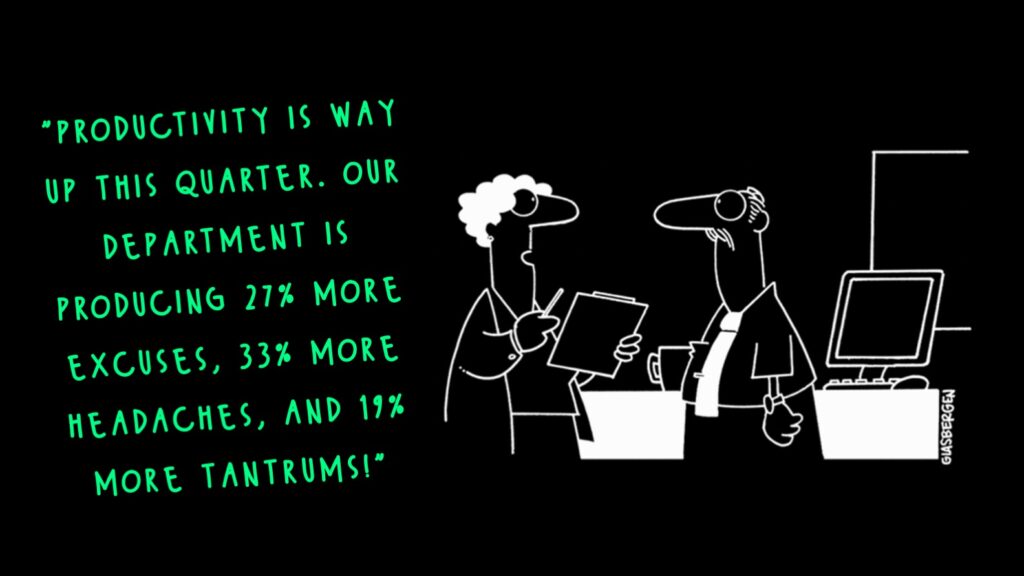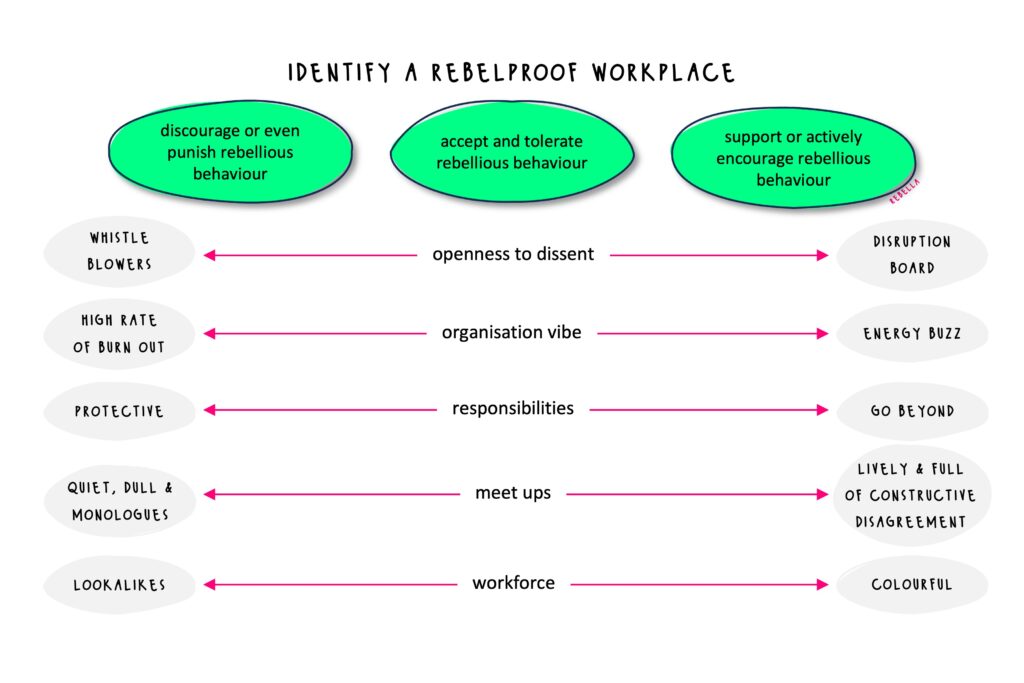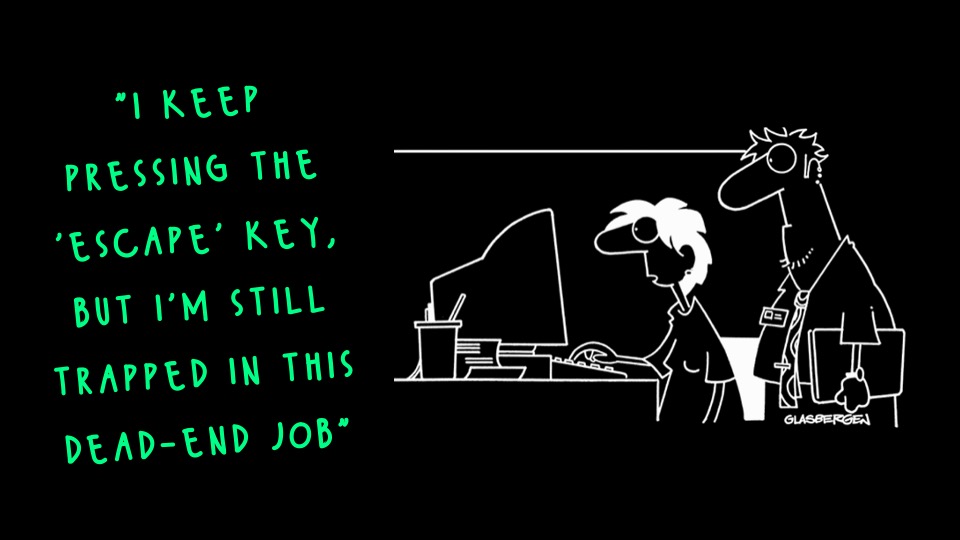
dr rebel: you'll only see it when you get it (johan cruijff)
Today’s question: how do you recognise a ‘rebel-proof’ workplace?
the original question i received was: “i am a rebel and orienting on a new workplace. which questions do i ask my new colleagues to check if this workplace is rebel-proof?”
when you are a rebel, you don’t want to end up in a place where you cannot be your (quirky) self. i believe that you can distinguish three types of attitudes towards rebellious behaviour:
discourage or even punish rebellious behaviour:
- there is no room for discussion (e.g. in team meetings), and if you share a different viewpoint regularly, people find you difficult.
- people who break the rules are reprimanded without further investigating their actions.
- there are examples of whistleblowers.
accept and tolerate rebellious behaviour:
- people can bring up ideas and suggestions, however, they are only considered if the leader sees a clear business case (or a personal gain).
- employees can work on improving their workplace but are not allowed to take initiative and go beyond their responsibilities.
- you can go the extra mile, but there is no compensation in any way, e.g. no recognition, no increased chance of promotion, and no additional salary.
support or actively encourage rebellious behaviour:
- teams are very (cognitively) diverse and buzzing with energy.
- leaders stimulate people to come up with (and work on!) ideas and suggestions to improve the current way of working, even if they exceed the person’s or team’s responsibilities.
- there is a disruption board or task force that continuously challenges the status quo.
whenever you orient on a new role in an unfamiliar environment, this graphic will help you identify their attitude towards rebelliousness:

you can formulate questions on these five themes, and always ask for examples! these are two of my favourite questions i also ask to figure out how rebel-proof a workplace is:
- how would you define a difficult team member or co-worker, and what specific behaviours make them difficult? (if they say that they ask too many questions or come up with ‘dumb’ questions, that’s a sign that the workplace may not be rebel-proof!)
- who are the most successful leaders in the organisation, and what characterises them? (if these leaders are open to different viewpoints and encourage team members to think along or challenge the status quo, that’s a good sign!)
by the way, it’s not only about asking questions. by observing, you can also learn a lot about the workplace. so, if you get a chance to walk around, do so and look closely. is the workforce colourful (not only skin colour but also how they dress)? do you feel a buzz? how do people engage in conversations in the hallway or at the coffee machine?
download this rebel tool right here, right now!

do you have a burning question for dr rebel?


